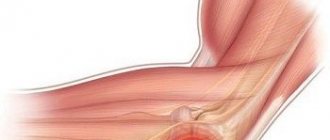Dizziness is the perception of your body in space that does not correspond to reality. This is a fairly common symptom of both neurological and mental and somatic diseases. An average of 15–35% of the population experiences dizziness over their lifetime. Most often these are people over 60 years old - 20%, after 70 - 30% and after 80 - 50%.
Regular attacks of dizziness when standing up
significantly worsen the quality of life and can lead to injury due to a fall. This is especially dangerous for the elderly. For people of working age, such manifestations in the body often cause a temporary loss of the ability to work fully.
Conventionally, there are 5 main types of dizziness
:
- vestibular;
- lipothymic;
- postural;
- cervicogenic;
- psychogenic.
Vestibular vertigo develops due to damage or physiological stimulation of the peripheral vestibular apparatus and central autonomic structures. As a rule, difficulties with orientation in space arise when rotating the head. All this occurs with loss of balance, periodic falls, nausea and other unpleasant symptoms.
Lipotymic dizziness occurs during presyncope after excessive use of insulin or insulinoma. A characteristic symptom is “fog” in the head. A similar condition can occur after taking medications that depress the central nervous system. For example, tranquilizers.
Postural dizziness occurs due to various walking disorders.
Cervicogenic dizziness is provoked by diseases of the cervical spine. Dizziness with this pathology is a consequence of pain and limited mobility of the neck.
Psychogenic dizziness is typical for people with neuroses and personality disorders. Such attacks occur due to feelings of anxiety, panic attacks in various situations. This type is usually described as a feeling of instability, heaviness in the head, and a feeling of intoxication. In this case, there are no oscillatory eye movements, but, unlike other varieties, depression may occur afterwards. Treatment of dizziness in women
and men includes psychotherapy, vestibular exercises, and antidepressants.
Symptoms of dizziness and balance problems
People who experience dizziness often describe their condition as follows:
- feeling of body movement;
- loss of balance and body tilt to one side;
- feeling of tension, squeezing in the head;
- falling for no reason;
- unsteady gait or loss of her confidence.
Symptoms may only become more pronounced when changing body position or rotating the head. Dizziness can come on suddenly and be so severe that you need to sit or lie down quickly. It can last a day or even several, although more often it is limited to a few minutes.
What kind of violation is this
Dizziness is not a separate disease. The symptom indicates various pathologies. They provoke disorientation in space.
A feeling of moving or moving objects is created. Manifestations are especially common among older people and women.
Diagnosis is difficult, since dizziness is unstable and can manifest itself in varying degrees. In most cases it appears suddenly, without warning signs. It is characteristic of an episodic nature - the patient feels the appearance of a push from one side to the other.
It can also occur in the form of a sensation of objects circling around. The patient sometimes feels as if he is spinning, as if after visiting a carousel. The condition lasts from several minutes to an hour.
Causes of dizziness
There are many causes of dizziness, from diseases of the inner ear to taking certain medications. The most serious are defined by pathologies of blood circulation in the brain, also these are tumors or brain damage after falls or strong blows.
In many situations, the causes of severe dizziness
become diseases of the inner ear, benign paroxysmal positional vertigo, Meniere's disease. Ear infections are also often the cause.
Less common causes include vertebrobasilar insufficiency, stroke or intracerebral hemorrhage, multiple sclerosis, vestibular migraine, acoustic neuroma, orthostatic hypotension, hypoglycemia (low blood sugar), anemia (low iron levels), and medications.
Rice. 1. BPPV
Inner ear infections
Vestibular neuritis and labyrinthitis are disorders that result from infections. They cause inflammation of the inner ear or the nerve that connects the inner ear to the brain. After this, the transmission of sensory information from the ear to the brain is disrupted. The result is hearing loss and balance problems.
Inner ear infections are caused by viruses or bacteria. You can find out about the presence of viruses in the body by the symptoms of an internal respiratory tract infection. Its manifestations are noted several weeks before the onset of dizziness. You can get the infection at any age.
Diagnostics
During a visit to a medical facility, the doctor first begins to collect the patient’s complaints. After this, he proceeds to obtain data about the history of life and illness. This information makes it possible to suspect the etiology of the pathology in which dizziness occurs during sleep.
To confirm the diagnosis, specialists use a number of instrumental and laboratory examination methods. The most effective among them are:
- clinical and biochemical blood test;
- magnetic resonance and computed tomography;
- electroencephalogram;
- cerebrospinal puncture;
- electrocardiogram.
In addition, the doctor may schedule a consultation with other specialists. Most often this is a psychiatrist, ophthalmologist, cardiologist, neurologist, endocrinologist, traumatologist or surgeon.
Structure and functions of the inner ear
Rice. 2. Ear structure
Anatomy of the ear
The inner ear includes a system of tubes and sacs that are filled with fluid. All this is called a labyrinth, the functions of which are hearing and balance. Sound signals from the labyrinth are transmitted to the brain through the vestibulocochlear nerve with two branches. One transmits messages from the organ of hearing, and the other from the organs of balance.
The brain processes balance signals sent through the vestibular nerve from the right and left ears. When one side is infected, it sends false signals. This is how information is presented that does not correspond to reality, which leads to dizziness.
Vestibular neuritis
(nerve inflammation) affects the branch associated with balance. This leads to dizziness, impaired sense of self in space, sudden movement of the eyeballs with a rapid phase, but no transformations with hearing occur. A person may feel like objects around them are moving, and will usually make mistakes when performing coordination exercises.
Experts also use the term “vestibular neuronitis” (damage to the sensory neurons of the vestibular ganglion). Its symptom is severe, rapidly developing, paroxysmal dizziness. It is often characterized by vomiting and imbalance. Often the development of symptoms of dizziness
precedes ARVI. Sometimes, a few weeks before the full clinical picture, patients may experience short bouts of loss of balance.
Labyrinthitis (inflammation of the labyrinth)
occurs when infection affects both branches of the cochleo-vestibular nerve. Then the hearing changes and attacks of dizziness occur. Even with slight turns of the head, the symptoms become more pronounced. Therefore, some people are forced to support their head with their hands.
Benign paroxysmal positional vertigo (BPPV)
BPPV is one of the most common causes of dizziness
, manifested during sudden movements and head swings. The duration of the state is limited to a few seconds or minutes. It occurs when calcium crystals (otoliths) in the inner ear begin to move. Because of this, the sensation of body rotation occurs.
The causes of BPPV include a history of traumatic brain injury, as well as otitis media. Often the cause of the disease cannot be identified. Then the diagnosis is confirmed by taking a Dix-Hallpike test. To do this, the patient quickly lies down from a sitting position and slightly lowers his head, turned 45 degrees. The test is positive if, a couple of seconds after this, an attack of dizziness and nystagmus occurs.
From 20 to 28% of patients with BPPV report spontaneous resolution of symptoms within up to a month after the onset of dizziness. The disease is benign and recurs within the first 12 months in only 15% of cases.
Rice. 3. Dix-Hallpike test: A – turn the head to the right; B - turn your head to the left.
Treatment of BPPV
Treatment techniques include the Epley maneuver. It allows, by manipulating the head, to move the otolith (crystal) to an insensitive zone - the vestibule of the inner ear.
Rice. 4. Epley maneuver
If the effectiveness of such treatment is low, the patient is additionally prescribed a set of exercises to perform at home. This is Brandt-Deroff gymnastics, according to whose method it is necessary to practice 2-3 times a day for 1 to 3 weeks. Taking medications in this case usually does not give positive dynamics.
Rice. 5. Brandt-Daroff gymnastics
Operations are performed when repositioning techniques do not lead to anything. Surgical interventions carry the risk of complications such as facial nerve injuries and hearing loss.
Possible operations include:
- obstruction of the posterior semicircular canal;
- removal of the vestibular nerve;
- labyrinthectomy;
- selective neurectomy.
Meniere's disease
A disease characterized by repeated attacks of rotational vertigo. They last for several hours and are not without noise in the ears, tinnitus, fullness or distension, as well as hearing impairment. It occurs in approximately 0.2% of the population, usually in people between 40 and 60 years of age. The disease is based on expansion of the endolymphatic system in the inner ear, which leads to degeneration of the labyrinthine receptors.
The disease has the following manifestations:
- dizziness;
- unsteady gait;
- hearing impairment;
- problems with the perception of sounds;
- nausea and vomiting;
- tinnitus.
Treatment of Meniere's disease
Treatment of an attack occurs by taking vestibulosuppressors. Prevention of the disease necessarily includes following a low-salt diet, avoiding alcohol and caffeine, and using betahistine and diuretics.
If the chosen therapy does not lead to positive dynamics, more serious treatment is required. This may involve injecting medications directly into the ear or undergoing surgery.
Diagnosis for dizziness
For dizziness, patients undergo Halmagi tests to identify the level of the vestibulo-ocular reflex. Its violation indicates central and peripheral lesions.
The Halmagi test does not require the use of additional equipment or lengthy preparation. The patient needs to look at the bridge of the nose of the specialist who is sitting opposite. In this case, the doctor holds the patient’s head with both hands and turns it from side to side by 15 degrees. With a normal vestibulo-ocular reflex, the eyes remain looking at a given point. If there is a violation, then the gaze turns along with the turn of the head.
Rice. 6. Halmagi sample
Severe dizziness with repeated bouts of vomiting continues for up to 3-4 days, after which the patient recovers. Recovery can take up to several months. In older people, it usually drags on and is often incomplete. If positive dynamics are not observed within a month, then an MRI of the brain and audiometry should be performed to exclude Meniere’s disease.
Symptoms in a horizontal position
Dizziness is considered normal if it occurs quite rarely and under the influence of certain factors: when riding on swings, carousels and other similar attractions, when suddenly rising from a horizontal to a vertical position. This occurs because an imbalance occurs between the visual analyzing center and the vestibular apparatus due to a change in position.
It turns out that, being in a horizontal position, a person should not feel dizzy. But some patients insist that it is during a night's rest that they experience unpleasant symptoms, when they feel dizzy, sometimes accompanied by nausea and vomiting. Symptoms worsen when turning in bed. Don't expect dizziness to go away on its own. It is necessary to look for the cause that caused dizziness. These reasons may be serious changes occurring inside the body or its individual organs.
When should you see a doctor?
You should sound the alarm if dizziness becomes regular or prolonged. Get immediate help if you experience severe dizziness and unsteadiness along with the following symptoms:
- sudden headache;
- painful sensations in the chest area;
- labored breathing;
- numbness or weakness of the limbs;
- fainting;
- fast or intermittent heartbeat;
- slow or slurred speech;
- problems with coordination;
- continued vomiting;
- convulsions;
- sudden hearing loss;
- numbness or facial asymmetry.
Why is it dangerous?
In most cases, the condition is not dangerous. But if accompanied by such symptoms, you should immediately consult a doctor:
- dizziness appeared for the first time, accompanied by vomiting, nausea, severe headache;
- loss of consciousness;
- accompanied by weakness, hand tremors, tachycardia, hyperhidrosis, chest pain;
- does not pass more than an hour;
- sensitivity changes, weakness appears in one half of the body.
Such conditions can be dangerous not only to health, but also to life. A doctor's examination and a full diagnosis will be required.
Treatment of dizziness
Treatment of vestibular neuronitis
Once diagnosed, the patient is hospitalized, but sometimes outpatient treatment is acceptable.
In either case, treatment should be aimed at reducing the degree of dizziness, stopping vomiting and accelerating vestibular compensation.
Symptomatic therapy includes taking vestibular suppressants. For vomiting, injectable forms of drugs are used. The duration of treatment is determined by the complexity of the manifestations of dizziness. However, in most cases they are taken for no longer than 3 days. An additional effect is provided by a course of corticosteroids and antiviral drugs for middle ear infections.
The vestibular apparatus is best stabilized through special gymnastics. At first it may have a negative impact on your well-being, but after 2-3 days the therapy should stabilize the condition. You need to repeat gymnastics at least twice a day.
Tumors of the cerebellopontine angle (acoustic neuroma)
A fairly rare cause of dizziness. It manifests itself as slowly progressive hearing loss and tinnitus. Rotational vertigo is rare, but instability is common. For some time, vestibular disorders may be the only symptom of the disease.
After this, hearing impairment begins to occur. People with this problem need to undergo an MRI of the brain with IV contrast. This will help check the patient for the presence of a tumor in the posterior cranial fossa. If a tumor is found, patients need to consult a neurosurgeon to be referred for surgery.
Rice. 7. Acoustic neuroma
Vertebrobasilar insufficiency and cerebrovascular diseases
It is distinguished by the development of reversible dysfunction of the brain stem, cerebellum and other structures into which blood enters through the basilar and vertebral arteries. Ischemic attacks can manifest themselves due to violations of their patency. The reason is atherosclerotic changes, vascular hypoplasia. Slightly less often, inflammation, extravasal compression of the vertebral artery (in case of neck injury) or artery dissection become a prerequisite.
The key cause of loss of coordination in dizziness
There are problems in the functioning of small arteries with high blood pressure, diabetes mellitus, or two diseases together.
According to statistics, cerebrovascular disorders account for about 6%. The cause of dizziness at normal pressure
can be problems in the functioning of both the labyrinth itself due to problems with blood circulation, and disturbances in the area of various brain systems.
Most patients with vertebrobasilar insufficiency are diagnosed with other neurological symptoms. Separately, dizziness with problems with blood vessels is very rare. In such situations, further diagnosis is required to remove other associated factors.
You should not associate attacks of dizziness when changing the position of your head with compression of the vertebral arteries. Often, the rapid development of severe dizziness along with nausea, vomiting and increased blood pressure can be perceived as a signal of the development of cerebrovascular disease. But it usually increases due to severe dizziness and stress.
If a stroke is suspected, a person must be urgently hospitalized for examination and immediate treatment. In the hospital, an MRI of the brain is performed, which in case of a stroke will show focal damage to the cerebellum or brain stem.
Vestibular migraine
Rice. 8. Aura during migraine
Vestibular migraine is diagnosed quite rarely, although it is regarded as a common cause of recurrent non-positional vestibular vertigo. Its manifestations are dizziness of varying severity combined with migraine and weakness. It can occur both during migraine attacks themselves and in the intervals between them.
The duration of such attacks is from 3–5 minutes to 2–3 hours, sometimes days. They are not accompanied by noise or ringing in the ears, or hearing loss. Such attacks usually recur. The diagnosis of vestibular migraine is made based on the typical clinical picture, as well as in the presence of migraine and after excluding other possible causes of dizziness in women
and men.
Treatment of the disease, as with ordinary migraine, includes 3 stages: elimination of provoking factors, relief of the attack and preventive measures. To eliminate vestibular migraine, take anti-migraine drugs or analgesics, as well as vestibular suppressants. Prevention is necessary for regular and severe attacks of vestibular migraine. Then specialists prescribe β-blockers and tricyclic antidepressants.
Demyelinating diseases (multiple sclerosis)
It happens that dizziness is diagnosed in people with demyelinating lesions of the central nervous system, especially with multiple sclerosis. Diagnostic difficulties may arise when dizziness develops at the onset of the disease without other manifestations or when they are of moderate severity. Dizziness in this case can be of a mixed nature, and can also be characterized by a persistent course. To confirm the diagnosis, the patient needs to undergo an MRI of the brain with IV contrast.
Treatment of multiple sclerosis
The most important thing in treating this diagnosis is the elimination of life-damaging sensations and accompanying disorders: difficulties with coordination, hearing or vision. Treatment is determined by the cause of dizziness in men
and women and the mechanisms of its development. It is important to guarantee the patient’s almost complete independence in everyday life, try to avoid sources of stress and minimize the risks of falls and injuries.
Symptom management includes the use of vestibulolytics. The time of taking them should be short and discussed with a doctor, because inhibition of nerve formations does not allow compensatory changes to develop. The effectiveness of treatment increases with regular exercise and exercises to restore stable functioning of the vestibular apparatus.
Therapy is also important to improve coordination, stabilize gait, and develop skills in a person to avoid problems with balance in the future. Usually, physical therapy is used for this, which not only reduces discomfort, but also gives independence when moving.
Neurological diseases
Chronic fatigue leads the body to exhaustion. Disorders of the central and peripheral nervous system appear. These may be disorders caused by stroke, Parkinson's or Alzheimer's disease, or senile sclerosis.
Mental disorders can cause not only dizziness: there is a reluctance to live, and a loss of interest in everything that is happening around. This is how endogenous depression manifests itself. A person begins to feel causeless anxiety, which haunts him not only during the day, but also during sleep. In the morning, such a patient wakes up not getting enough sleep, he is drawn to rest, depression intensifies, everything seems prohibitively difficult and almost impossible. Such a patient definitely needs the help of a psychotherapist.
When sleep rhythm is disturbed, a person experiences nightmares. In them, he feels like he is being pulled into an abyss or a whirlpool, he wakes up from severe dizziness and a feeling of anxiety. The same nightmares haunt people with mental disorders, for example, with a depressive disorder or with excessive anxiety. Nightmares do not allow a person to fully rest. They aggravate the situation, lead to the fact that a person does not get enough sleep and begins to become even more nervous, worried, aggressive or depressed. The help of a specialist in this case will be very necessary and important.
How to get rid of dizziness during sleep
To get rid of an unpleasant symptom, you need to determine the cause of its occurrence. First of all, you need to see a therapist. He will determine the origin of the problem and refer you to a neurologist, otolaryngologist or endocrinologist. In some cases, the help of a psychotherapist may be needed. To exclude the presence of an inflammatory process, a blood test is taken. In some cases, a computed tomography scan and x-ray examination are required.
The treatment approach is determined after a clinical examination.
- In case of osteochondrosis development, non-steroidal anti-inflammatory drugs are prescribed, among which are Nimesulide and Ketorolac. Additionally, massage sessions and therapeutic exercises are provided.
- Treatment of headaches and dizziness with impaired blood pressure is carried out with Enalapril or Enap.
- Signs of atherosclerosis are eliminated with the help of nootropics, antioxidants and vascular-active drugs. In this case, it is necessary to take Tocopherol, Piracetam, Actovegin or Dihydroquercetin. The medication and the regimen for taking it are selected individually.
- For dizziness caused by intoxication of the body, it is necessary to take sorbents - activated carbon, Polysorb, Smecta or Enterosgel.
- Help relieve vascular spasm and improve blood circulation: Nootropil, Phezam and Betaserc. The drugs are used orally or by injection.
- Treatment of disorders in the brain in the presence of a tumor is selected taking into account the stage of the pathological process. Surgery or radiation therapy may be required. Additionally, non-steroidal anti-inflammatory and anticonvulsant drugs are taken.









